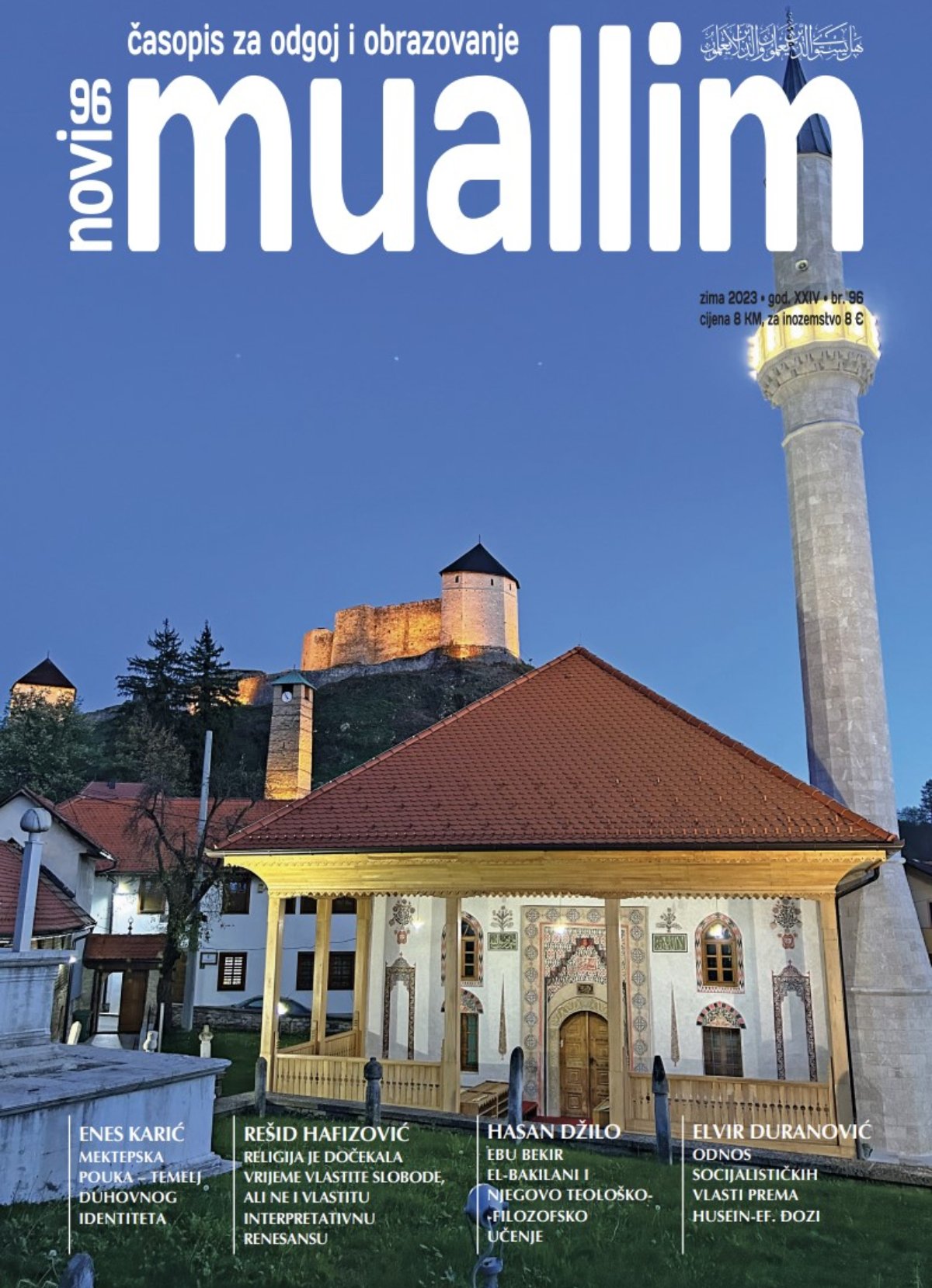Mektepska pouka u 2023/2024. godini - analiza, izazovi i smjernice
DOI:
https://doi.org/10.26340/muallim.v24i96.2056Ključne riječi:
mekteb, mektepska pouka, polaznici, muallimi/e, roditelji, Nastavni plan i program mektepske pouke, ilmihali, odgoj, kvantitet, kvalitet, mektepski centarSažetak
UDK: 37.014:28
Autor u prvom dijelu rada čitatelje upoznaje s osnovnim informacijama u vezi s realizacijom mektepske pouke Islamske zajednice u Bosni i Hercegovini u 2023/2024. godini, o početku i završetku mektepske pouke, primjeni Nastavnog plana i programa i ilmihalima. Zatim slijede informacije o organizacionim jedinicama Islamske zajednice, mešihatima i krovnim organizacijama Islamske zajednice Bošnjaka u dijaspori koje su provele ili pokrenule proceduru prilagodbe Nastavnog plana i programa mektepske pouke za svoje područje, te izradu dvojezičnih ilmihala, tj., na bosanski jezik i jezik zemlje u kojoj žive i rade. U drugom dijelu autor u radu skreće pažnju na dužnosti organa i personalnih nosioca odgovornih dužnosti Islamske zajednice u pogledu organiziranja, obezbjeđivanja uslova, podrške, nadzora i praćenja odgojno-obrazovnog procesa u mektebu. Također, u radu je pažnja skrenuta na kvantitet i kvalitet mektepske pouke u pogledu broja polaznika, broja časova na sedmičnom i godišnjem nivou, te ukupno predviđenom broju časova tokom pohađanja mektepske pouke, obimu sadržaja Nastavnog plana i programa mektepske pouke. U središnjem dijelu rada značajna pažnja skrenuta je na mekteb i mektepsku pouku kao važnu podršku porodici i roditeljima u pogledu odgajanja i podizanja djece. Također, autor ukazuje i na neke izazove mektepske pouke, te ih kategoriše kao općepoznate, specifične, funkcionalne i administrativne. Rad donosi i određene smjernice i preporuke za organiziranje, ustrojstvo, unapređenje, afirmaciju i podršku mekteba i mektepske pouke. Jedan dio rada govori o organiziranju mektepske pouke po modelu mektepskog centra s osvrtom na iskustvo, prednosti, nedostatke i izazove. U završnom dijelu rada autor afirmiše potrebu iznalaženja novih modela materijalne podrške mektebu i mektepskoj pouci, te promociji mekteba. Na kraju rada je afirmativan zaključak za organiziranje i ustrojstvo mektepske pouke.
Downloads
Objavljeno
How to Cite
Broj časopisa
Rubrika
License

This work is licensed under a Creative Commons Attribution 4.0 International License.
Naknada:
a. Časopis ne naplaćuje naknadu za obradu članaka (APC) i naknadu za podnošenje članaka.
Autori koji objavljuju u ovom časopisu pristaju na sljedeće uvijete:
- Autori zadržavaju autorska prava i pružaju časopisu pravo prvog objavljivanja, pri čemu će rad jednu godinu po objavljivanju biti podložan licenci Creative Commons imenovanje koja omogućuje drugima da dijele rad uz uvijet navođenja autorstva i izvornog objavljivanja u ovom časopisu.
- Autori mogu izraditi zasebne, ugovorne aranžmane za ne-ekskluzivnu distribuciju rada objavljenog u časopisu (npr. postavljanje u institucionalni repozitorij ili objavljivanje u knjizi), uz navođenje da je rad izvorno objavljen u ovom časopisu.


